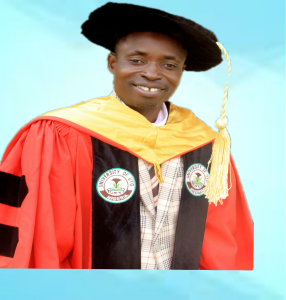OVERVIEW
 The Department of Architecture came into existence following the establishment of the Faculty of Environmental Studies in the 1995/96 academic year.
The Department of Architecture came into existence following the establishment of the Faculty of Environmental Studies in the 1995/96 academic year.
Together with four other Departments – Fine and Industrial Arts, Land Surveying/Quantity Surveying and Urban and Regional planning – these four departments were the pioneer Departments in the Faculty of Environmental Studies. In its letter, Ref. No. NUC/AP/71 of December 11, 1997, these Departments were formally recognized and approved by the National Universities Commission (NUC) and included in the list of approved academic programmes in Nigerian Universities.
The proposal to establish the Department Estate Management materialized in 2000 when the programme was excised from the combined Department of Urban and Regional Planning/Estate Management and given full autonomy.
The Department of Quantity Surveying started as a sub-discipline of the former Department of Land/Quantity Surveying in the 1995/1996 academic session, after it received the approvals of both the University Senate and the NUC. In November 2002, shortly before the NUC accreditation visitation, the Quantity Surveying unit gained full-fledged status as a department.
The department of Building was given NUC approval to commence in 1995/96, but could not do so due to dearth of academically qualified professionals in the area. However, the programme started in the 2000/2001 academic session.
The Department of Land Surveying was later to be renamed Department of Geoinformatics and Surveying.
The faculty offers
BACHELOR OF ARCHITECTURE, BACHELOR OF SCIENCE AND BACHELOR OF ART DEGREES:
(B. Arch) – Architecture.
(B. Sc) – Building, Estate Management, Geoinformatics and Surveying, Quantity Surveying and Urban and Regional planning.
(B. A) – Fine and Industrial Arts.
Visit Faculty official website or Journal Site
To be a centre of academic excellence by utilizing the available human and technological resources for teaching, research, community service and sustainable development.
To diligently pursue scholarship and deploy its output for human capacity development and economic growth in the society, with active participation in ICT.
